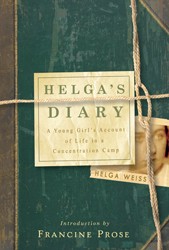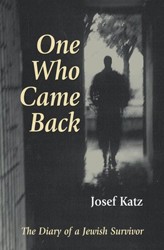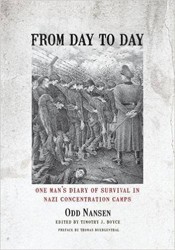By
– December 12, 2011
Morris Breitbart was born in Szczercow, Poland in 1921. When World War II started the Nazis burned his town to the ground and forced the Jews to the Lodz ghetto. In transit from the ghetto to Treblinka in 1943, where his parents, two sisters, and most of his extended family were murdered, Mr. Breitbart escaped from the transport train. Through 1944 he remained in hiding in the farmhouse of an elderly non-Jewish woman, first in her attic and then in a hole under the stable. This diary is the testimony of how a young man, age twentytwo, managed to sustain himself amid his profound sense of loss — of his parents and siblings, his friends, his home world: “Once I had a mother, a father, sisters, but that was long ago. Today, in real life I see that I have remained a lonely, homeless orphan. And it was long ago, they came one sunny, summer day, the murderers came, heartless tyrants, they tore me away from my beloved parents and sisters.…” The foreward by Mr. Breitbart’s wife and grandchildren adds to our understanding of the inner world of this extraordinary man, whose brief diary was miraculously found among his discarded papers many years after his death.
Paul Marcus is a training and supervisory analyst at the National Psychological Association for Psychoanalysis in New York City and Co-Chairperson of the discussion group Psychoanalysis and Spirituality at the American Psychoanalytic Association. He is the author of Psychoanalysis and Toileting: Minding One’s Business (Routledge).





